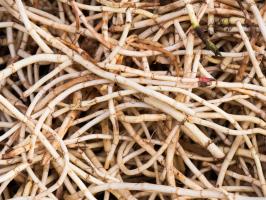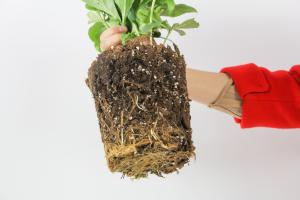What Deficiencies Can Cause Pot Plants to Get Excessive Nitrogen?
When growing pot plants, it is common for growers to focus on providing their plants with the correct amount of nutrients to ensure healthy growth. However, there are many factors that can lead to excessive nitrogen in pot plants, including deficiencies in other essential nutrients. In this article, we will take a closer look at what deficiencies can cause pot plants to get excessive nitrogen.
Calcium Deficiency
One of the most common nutrient deficiencies that can lead to excessive nitrogen in pot plants is calcium deficiency. Calcium is an essential nutrient for all plants, and without sufficient amounts, plants will have difficulty absorbing other nutrients. As a result, pot plants that are lacking in calcium may experience stunted growth and poor root development, making it difficult for them to absorb other essential nutrients like nitrogen. When nitrogen is absorbed but not utilized by the plant, it can build up over time, leading to excessive nitrogen levels.
Magnesium Deficiency
Another common nutrient deficiency that can lead to excessive nitrogen in pot plants is magnesium deficiency. Magnesium is an essential nutrient for plants as it plays a vital role in photosynthesis, which is the process by which plants convert sunlight into energy. Plants lacking in magnesium may have difficulty with photosynthesis, which can lead to poor growth and reduced nutrient absorption. Without sufficient magnesium, plants may struggle to utilize nitrogen effectively, leading to excessive levels of nitrogen in the soil.
Phosphorus Deficiency
In addition to calcium and magnesium deficiencies, a lack of phosphorus in the soil can also result in excessive nitrogen in pot plants. Phosphorus is essential for plant growth and plays a critical role in the development of healthy roots and flowers. When plants are lacking in phosphorus, they may struggle to absorb other nutrients, including nitrogen. Without sufficient phosphorus, nitrogen build-up can occur in the soil, leading to excessive levels of nitrogen in pot plants.
Potassium Deficiency
Finally, potassium deficiency can also cause pot plants to get excessive nitrogen. Potassium is essential for plant growth and regulates many important functions within the plant, including water absorption and nutrient uptake. Pot plants that are lacking in potassium may struggle to absorb other nutrients like nitrogen, leading to nutrient imbalances and the accumulation of excess nitrogen in the soil. As a result, it is important to ensure that pot plants receive sufficient levels of potassium to promote healthy growth and avoid nitrogen build-up.
Conclusion
Overall, there are many factors that can cause pot plants to get excessive nitrogen, including deficiencies in other essential nutrients, such as calcium, magnesium, phosphorus, and potassium. By understanding the importance of these nutrients and their impact on plant growth, you can address deficiencies early on and prevent the accumulation of excess nitrogen in the soil, promoting healthy growth and a bountiful harvest.

 how many times do yo...
how many times do yo... how many planted tre...
how many planted tre... how many pine trees ...
how many pine trees ... how many pecan trees...
how many pecan trees... how many plants comp...
how many plants comp... how many plants can ...
how many plants can ... how many plants and ...
how many plants and ... how many pepper plan...
how many pepper plan...

































